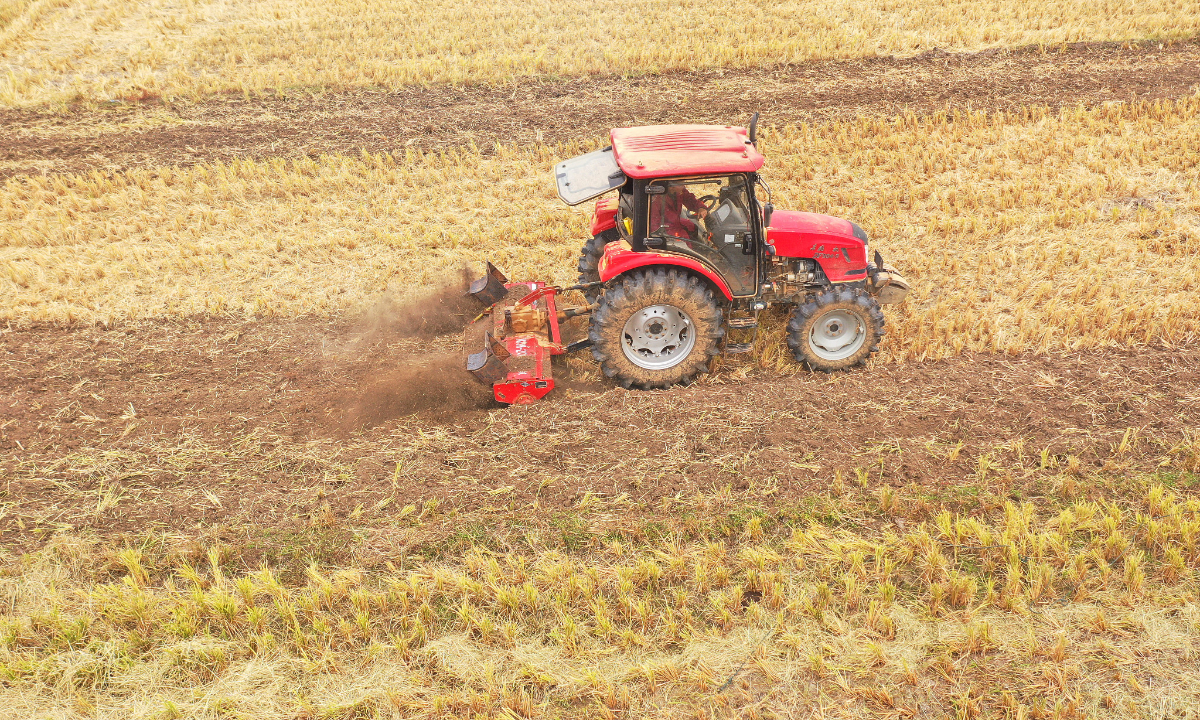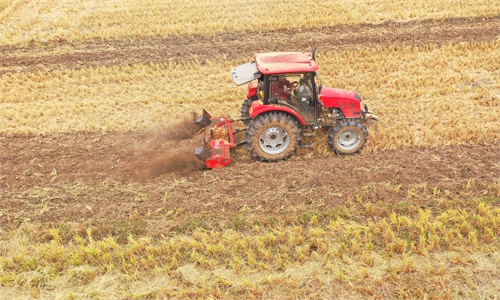
A farmer operates a tractor to plough and prepare for sowing winter grain in Taihe county, East China's Jiangxi Province on October 27, 2022. Photo: VCG
China’s 2022 domestic grain purchases are expected to reach 800 billion jin or 400 billion kilograms, keeping in line with the same level seen in previous years, according to the National Food and Strategic Reserves Administration, making a positive contribution to stabilizing the global grain market and ensuring food security.
The purchase of grain from summer 2022 was successfully concluded, and the purchase of autumn grain is proceeding in an orderly manner, the National Food and Strategic Reserves Administration said.
As of Thursday, all kinds of grain enterprises in the main producing areas had purchased 232.4 billion jin of autumn grain, basically unchanged from 2021.
Divided by regions, the grain purchase in the southern part of China has entered the final stage, with the progress passing 90 percent while that in northeastern China and northern China is still in peak season with corn purchase progress exceeding 40 percent in northern China.
Domestic grain purchasing is vital to the profit and interests of grain farmers, food security and overall economic and social development.
According to the National Food and Strategic Reserves Administration, after the launch of autumn grain in 2022, the market has seen high demand and good sales for high-quality varieties. For example, the average purchase price of corn in major producing areas reached 1.43 yuan ($0.21) per jin, and grain farmers reported good profits.
China's grain output in 2022 hit a record high at 1.373 trillion jin, up 0.5 percent year-on-year, according to the country's National Bureau of Statistics (NBS).
The bumper harvest comes despite extreme regional weather conditions, including rare autumn flooding in the northern part of the country and extended drought and high temperatures in the south, on top of COVID-induced disruptions, said Wang Guirong, an NBS official.
The harvest has laid a solid foundation for China to cope with a complex and volatile international environment, overcome risks and challenges, stabilize growth and ensure the economy expands within a reasonable range, Wang added.

